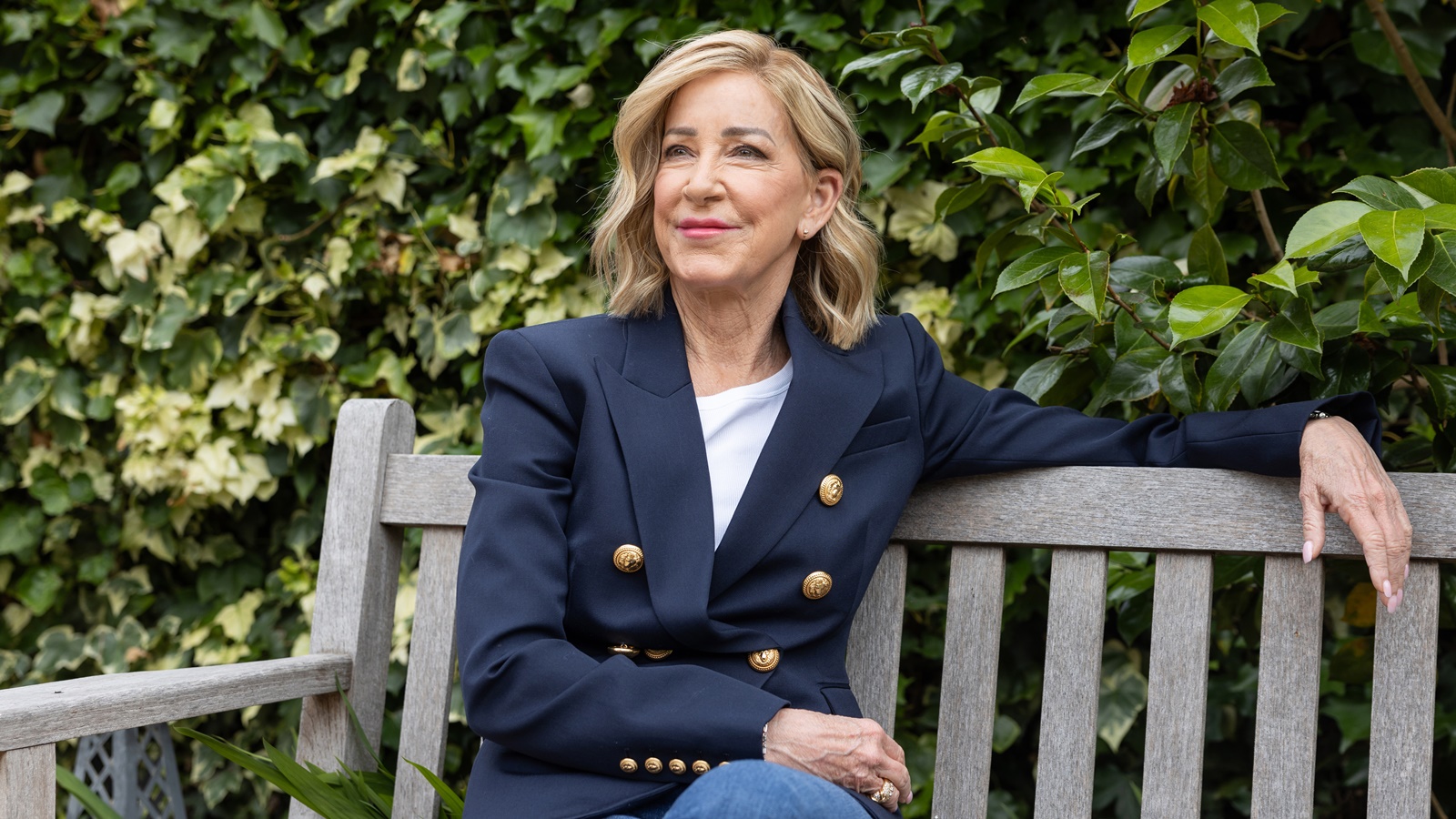Chris Evert beat cancer. Then it came back. So she beat it again. | World News

Written by David Waldstein,
Chris Evert’s schedule is full again. Six months after announcing for the second time that she had cancer, Evert, one of the greatest champions in sports history, is back to work as a tennis commentator, coach and fundraiser. She seems to have beaten cancer again.
Last week, she spent less than a day at her home in Florida, a stopover before flying to London, where she will work as a commentator at Wimbledon for the next two weeks.
During this short time at home, 69-year-old Evert slept a little, took care of the charity she works for and then packed her things for the trip. Now work, travel and, above all, family take up her time instead of chemotherapy.
She had just flown home from Denver after visiting her son’s newborn boy. Yes, Evert, once a steely teenager who won the first of her 18 major tennis titles in 1974, is now a grandmother.
“I’m already in love with this little baby,” she said in a video call. “It makes me even more excited about life.”
Two years ago, Evert made her first cancer diagnosis public to raise awareness of ovarian cancer, from which her younger sister, also a tennis professional, died in 2020.
Because of her sister’s diagnosis, Evert underwent testing and soon found out she had stage 1 ovarian cancer. She underwent surgery, went through difficult chemotherapy treatments, and lost her hair. But her hair grew back, as did her positive attitude. The cancer was in remission, and doctors told her she had a 94 percent chance of making a full recovery.
Evert returned to work providing live analysis at tournaments and helped run her tennis academy and the charity arm of the United States Tennis Association, where she raised record-breaking donations.
“She is our superpower,” said Ginny Ehrlich, the foundation’s CEO.
But she’s only human. She’s like the legions who have to deal with the terrible news that the cancer has returned. Just over a year after her remission, a precautionary CT scan in December showed a cancerous mass. Evert went through the whole process a second time and can now happily report that the cancer is gone again. She’s also very honest with herself.
During the video call, she looked out the window of her house, tugged at the brim of her baseball cap and smiled brightly.
“Doctors are always hopeful,” she said. “If something comes back a second time, of course there’s a greater chance it will come back. Some people have cancer once and it goes away and they live another 30 or 40 years. That’s a wonderful story. It’s not always like that. But my doctor told me I’m not going to die from it.”
The cancer was back to stage 1, meaning it hadn’t spread. As with her first diagnosis, early testing was crucial – a message Evert is eager to share. She said that since her first diagnosis and after discussing genetic testing, five women in her circle have also undergone surgery.
Evert underwent her second surgery in December and endured further chemotherapy, which she downplayed, mainly because she knew what to expect.
“For the first four or five days I feel awful, nauseous, weak and have bone pain,” she said. “But after four or five days it’s over and then I have two and a half weeks to feel good again before the next chemotherapy treatment. Given the advances that chemotherapy has made in the last 25 to 30 years, I can’t complain.”
She was supposed to have six rounds of it, but developed an allergic reaction. She had trouble breathing and her tongue swelled, so she stopped after four. But tests showed she was cancer-free again. The remaining treatment is four tablets a day for the next two years.
The physical strain of the treatments and the side effects of the medications have reduced her energy and vitality to 80% of what they were before the cancer struck, she says. But she is strong enough to exercise, hold her newborn grandson, travel and work.
“You can’t live in fear,” she said. “I just have to keep training, try to be as healthy as possible and keep all my CT scans and doctor’s appointments.”
Because the cancer had returned, she was unable to compete in the Australian Open in January. However, she returned to work at the French Open in May, spending a week on air for Eurosport. After Wimbledon, she plans to be in New York this summer to cover the US Open for ESPN and attend the USTA Foundation fundraiser.
She became chair of the foundation in 2019 and, despite battling cancer, has already served two years longer than previous chairmen’s regular terms. In that time, Evert has helped raise $55 million. Even seasoned donors are easily impressed when they get a call from a Hall of Fame player who won the U.S. Open six times and the French Open seven times. Evert also won an astonishing 90% of her singles matches.
“We will keep Chris Evert as long as we can,” Ehrlich said. “She embodies our mission in the way she dedicates her time and energy to young people.”
And Evert sees no reason to stop. Even as she described how her cancer returned and then regressed, she wanted to emphasize the foundation’s recent efforts to keep kids playing tennis after age 13, when most give up the sport.
“I’m not going to stop living my life,” she said. “I’m always going to keep going.”



